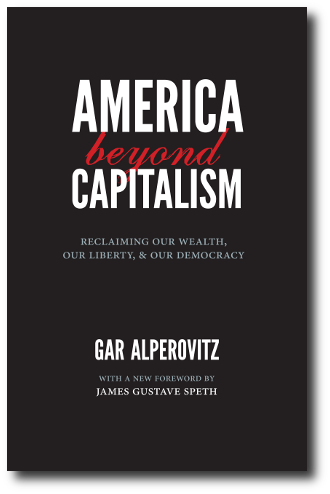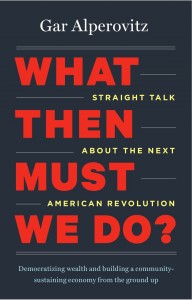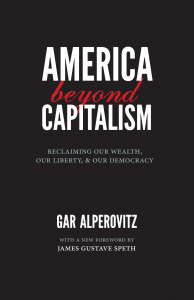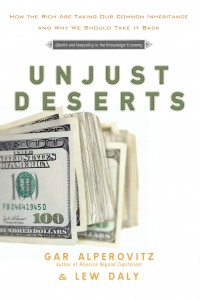I was surprised to read Sam Gindin’s characterization of my views on worker-ownership and cooperatives in his recent article “Chasing Utopia.” I agree with Wolff and Wright that worker-owned and self-directed firms make sense in a number of areas—and with Gindin’s judgment that “in general, factory takeovers and co-ops should be enthusiastically supported.” However, they are hardly at the center of my argument for a new socialism.
Gindin states that “what’s missing in so much recent analysis is a sober, comradely investigation of their strengths and weaknesses so that, over and above solidarity, we can learn from them rather than add to existing illusions—thereby gaining a better appreciation of what transforming society would really require.” I fully agree. Indeed, I debated Richard Wolff on the need to go beyond a narrow worker-ownership position during a major session of the Left Forum in 2014. I also discussed the same issues at length with another advocate of a largely worker self-managed market system, David Schweickart in a 2011 gathering. Again, though I think the Mondragón cooperatives are extremely important, they also leave many important questions unanswered (as outlined in a 2013 article when Fagor, one of the most prominent cooperatives in the network failed.)
A major problem is that operating in a market system worker cooperatives are subject to many of the problems of any enterprise operating in competition with others: They must externalize and reduce costs when under pressure, which can lead to environmental despoliation and, as we see with many coops today, the use of wage labor. Worker-ownership can also lead to unequal outcomes: the garbage worker-owners, for instance, are likely to have different incomes than the high tech worker-owners, and both groups are likely to have different levels of power in protecting those incomes.
Broadly, any serious next system model must almost certainly involve a mix of democratic ownership forms, including: small scale cooperatives, mixed geographic ownership models (some—at the local level—joint venture community/worker coops, some neighborhood, some municipal); state ownership; regional ownership and national ownership. Worker management of larger public forms is also an important element of a solution. In particular (as Gindin mentions in passing) I have also written at length about the importance of national and regional public enterprise in any serious model—in multiple pieces in the Nation (see here and here) and the New York Times (here and here), as well as more extensively in America Beyond Capitalism and in several of chapters of What Then Must We Do? (where some of the complexities of the worker/community challenge are also emphasized in an Afterword.)
The ownership question is of course, only one piece of the puzzle. The relationship between planning and markets, for instance, also needs to be fundamentally reshaped. This is not the place to attempt an extended discussion. Enough has been said to suggest, however, that contrary to Gindin, while I think worker coops can play an important role in the building of a socialist system, other public forms are critical at all levels.
On the specific question of ESOPs: I agree with Gindin that many—particularly those which involve a minority share of the company in worker’s hands—can have the effect of enforcing corporate discipline. It is unclear, however, that this is the case in the estimated 30-40% of ESOPs which are 100% worker owned; nor among those that have experimented simultaneously with unions. The notion of workers actually capturing ownership and control evidenced in the best cases also serves to introduce the simple idea of democratic ownership in a society that, unlike many European societies, has a very limited understanding of basic democratized ownership principles.
On the matter of historical change: I do not believe in an oversimplified theory of historical change. At this point in time a critical requirement is the introduction of basic socialist ideas, along with demonstrations that it is possible, quite simply, to do this in the United States, in principle and in politics, as well as in institutions that embody the principle of democratic ownership. What may happen at subsequent stages of development is a different matter, especially if sufficient political work and institutional experimentation and development is done over the coming period. My book, What Then Must We Do? suggests several possible scenarios, including that we may ultimately be forced to confront some American equivalent of fascism, as Chile did. Even this possibility, however, does not remove the need, now, of laying down foundations in theory, and in tangible practical experiments, upon which to build forward over time.
More on these various points can be found at www.pluralistcommonwealth.org and www.garalperovitz.com. See also this extended Real News discussion: http://therealnews.com/t2/index.php?option=com_content&task=view&id=31&jumival=11382
 AMERICA BEYOND CAPITALISM
AMERICA BEYOND CAPITALISM



 Agenda
Agenda  Posterboard
Posterboard 